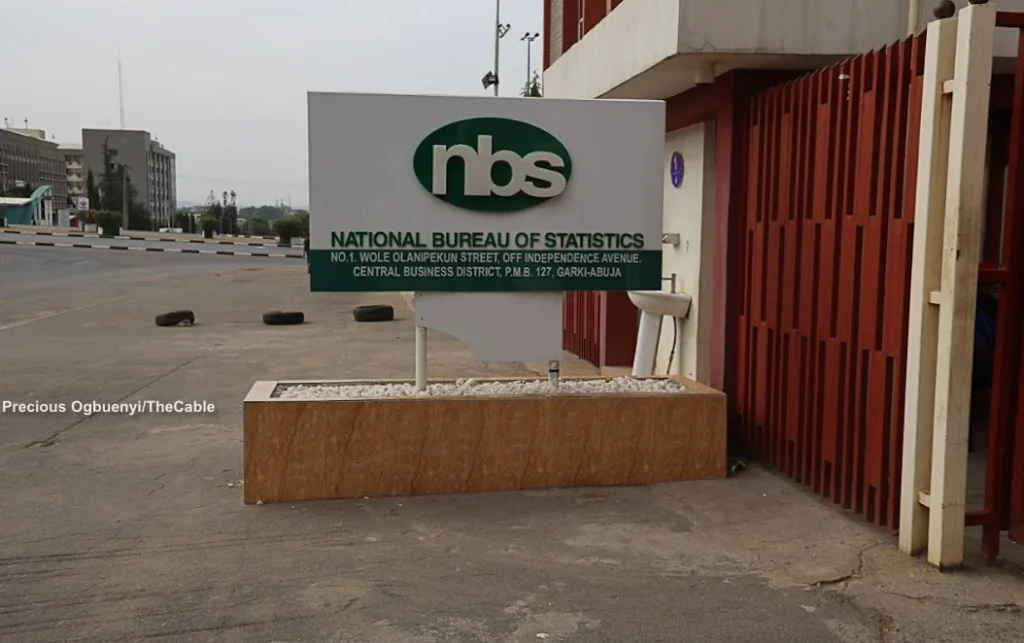Nigeria’s revenue from postal services witnessed a sharp decline in 2022, falling by 17.05 percent to ₦3.01 billion from the ₦3.63 billion recorded in 2021. This significant drop highlights the deepening challenges facing the country’s traditional postal infrastructure amid the growing shift toward digital communication and logistics alternatives.
The new figures were released by the National Bureau of Statistics (NBS) on Monday in its latest Postal Service Data for 2022. The report presents a broad overview of the performance of Nigeria’s postal sector, showing contractions in nearly every key operational metric.
Sharp Decline in Revenue Reflects Sectoral Strain
The ₦620 million drop in postal service revenue within just one year underscores the impact of widespread systemic challenges affecting the sector. Analysts believe that declining public reliance on physical mail, the rise of private courier services, and underinvestment in infrastructure have all contributed to the worsening performance.
With increasing digitization in both private and public communications—ranging from email to digital document delivery—postal services have faced dwindling patronage. Even sectors that once relied heavily on postal delivery, such as government institutions, banks, and legal systems, have moved toward digital alternatives that are faster, cheaper, and more efficient.

Number of Postal Outlets Drops by Nearly 20%
In addition to revenue decline, the NBS report also recorded a substantial drop in the number of post offices and postal agencies operating across the country. The total number fell from 2,794 in 2021 to just 2,251 in 2022—a 19.43 percent reduction.
This reduction represents the closure or inactivity of 543 postal locations within one year, which experts interpret as a signal of either financial strain, operational inefficiency, or strategic withdrawal from unprofitable locations. The closures may also reflect the inability of the Nigerian Postal Service (NIPOST) to keep up with rent, maintenance, and staff costs for these outlets, especially in areas with low usage rates.
The downsizing of postal infrastructure has further implications for rural areas, where post offices often serve as the only point of access to essential government communication and services. With many of these offices closing, entire communities may now be cut off from basic mail services.
Installed Mailboxes Also Decline Slightly
The total number of mailboxes installed across Nigeria in 2022 was reported as 836,731—only a slight drop of 0.08 percent from the 837,428 mailboxes recorded the previous year. Although the reduction seems marginal, it still signals stagnation in infrastructure development, particularly given Nigeria’s growing population and urban expansion.
Rather than showing growth in anticipation of increased demand or strategic transformation, the postal system appears to be in maintenance mode, merely holding onto existing assets without much expansion or upgrade. This situation further weakens the competitiveness of the service, especially in comparison to rapidly advancing private courier companies and digital communication platforms.
State-by-State Distribution of Mailboxes Shows Wide Gaps
The NBS report also breaks down the geographical distribution of mailboxes in 2022. Lagos State led the country with the highest number of installed mailboxes at 143,416. This comes as no surprise, considering Lagos is Nigeria’s most populous city and the country’s commercial capital.
In stark contrast, Jigawa State recorded the fewest mailboxes, with only 1,800 units across the entire state. The wide gap between the highest and lowest figures reflects long-standing infrastructural inequality between urban and rural regions.
Many analysts argue that this disparity hinders nationwide connectivity and limits access to government services for people in rural or underserved regions. With many states unable to expand or even maintain their basic postal infrastructure, residents are often forced to depend on informal delivery methods or travel long distances to reach functioning post offices.
Underlying Causes of the Decline
Multiple factors have been cited for the persistent decline in postal service performance in Nigeria. These include:
-
Digital Disruption: The rise of email, instant messaging, e-government services, and digital banking has greatly reduced the demand for physical mail delivery.
-
Competition from Private Sector: Private courier services such as DHL, FedEx, GIG Logistics, and others offer faster and more reliable services, drawing customers away from public postal services.
-
Operational Inefficiencies: Issues such as slow delivery, lack of innovation, bureaucratic delays, and poor customer service have tarnished the image of public postal services.
-
Inadequate Funding and Oversight: The sector suffers from chronic underinvestment, leaving many facilities in poor condition with outdated equipment and low staff morale.
-
Security Concerns: In some parts of the country, especially conflict-affected regions, postal operations have been suspended or limited due to safety issues.
Call for Reform and Digitization
Experts and stakeholders are now calling for urgent reforms to revamp Nigeria’s postal services. Suggestions include:
-
Digitizing Services: Transforming NIPOST into a digital-friendly agency offering hybrid services, such as electronic notifications and virtual mailboxes.
-
Public-Private Partnerships (PPPs): Collaborating with logistics and fintech companies to improve efficiency and expand service offerings.
-
Infrastructure Overhaul: Reinvesting in physical infrastructure, particularly in underserved regions, to ensure equal access to communication tools.
-
Legislative and Regulatory Reform: Updating postal laws to reflect the modern communication environment and ensure regulatory clarity for digital services.
Conclusion: A Sector at a Crossroads
Nigeria’s postal service industry appears to be at a critical juncture. With revenue shrinking, infrastructure dwindling, and customer trust declining, the sector faces a growing risk of irrelevance unless bold steps are taken. However, with strategic investment, digital transformation, and inclusive policies, there remains potential to revive the industry and restore its relevance in Nigeria’s fast-evolving communication and logistics ecosystem.
If left unaddressed, the decline of postal services could further widen the communication gap between urban and rural populations, undermining national development goals that rely on an inclusive, accessible public service infrastructure. The time to act is now—before the system collapses under the weight of its neglect.







